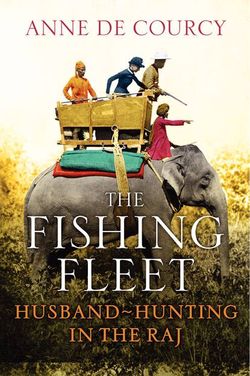 Anne de Courcy is a journalist and prolific non-fiction writer, having penned eleven books including Diana Mosley, Debs at War, and The Viceroy’s Daughters. Her latest book, The Fishing Fleet: Husband Hunting in the Raj, goes on sale March 4th and she stopped by today to talk about her favorite library.
Anne de Courcy is a journalist and prolific non-fiction writer, having penned eleven books including Diana Mosley, Debs at War, and The Viceroy’s Daughters. Her latest book, The Fishing Fleet: Husband Hunting in the Raj, goes on sale March 4th and she stopped by today to talk about her favorite library.
***
Two things are essential to me in my writing life, both highly individual and horrendously expensive but to me, worth every penny – my Burmese cats and the London Library (annual subscription: £460).
My cats, a brother and sister with glossy bitter-chocolate coats and huge golden eyes, are a constant source of joy, amusement and aesthetic pleasure. If you live alone, as I do, it is not only a comfort to have something else with a heartbeat in the house but a salutary reminder that one’s own wishes cannot always be paramount. It is truly said that dogs have owners but cats have staff.
As for the London Library, the world’s largest independent, how to begin enumerating its endless charms? Housed in a lovely old building in St James’s Square, where its million-plus books hold almost everything you could possibly want, its atmosphere is halfway between that of club and scholarly retreat.
Its million-plus books hold almost anything you could want to know, while its vast array of journals and pamphlets are there physically (rather than on microfiche). Somehow, turning over the broadsheet pages of an original copy of The Times of 1855 to read the reports of their war correspondent William Russell, takes one more instantly back to the Crimean War than any amount of beautifully digitalised print.
Possibly the two greatest things about this beloved institution are the helpfulness of the staff and the ease of access to what you want. The men and women behind the big polished withdrawals desk in the front hall are uniformly kind, polite – and knowledgeable.
As for getting the books you want, there is no tiresome filling in of forms with your request and waiting for however long (oh! British Library!) for them to trundle up to your desk. Instead, you simply go and find them, perhaps walking into the farthest recesses of the Library along the slatted metal floors of the various levels at the back.
(Here I should offer a pointer to the unwary female visitor. On my first visit to Indian History I happened to be wearing a skirt, but never again – anyone glancing up through the slats would have had far too revealing a view of me from below. Fortunately most Library members are far too engrossed in finding a book to spare a glance for anywhere except the shelves.)
One of the great joys of the Library is its Reading Room. So is getting there: walking up the wide red-carpeted wood staircase hung with paintings or photographs of past Library presidents or committee members, from its founder Thomas Carlyle through Dickens, Thackeray, prime ministers Gladstone and Balfour (during his premiership) to the long-serving president T.S. Eliot.
The present holder of the post, the great playwright Sir Tom Stoppard, has overseen the Library’s excellent refurbishment. Even the lift is now faster – in the old days, it was said that two strangers could enter on the ground floor and be engaged by the time they reached Biography.
But one thing, mercifully, hasn’t changed. The Suggestions Book is as busy as ever. ’These new coat hangers are rubbish!’ follows one of the many requests to the Librarian to order some new volume. The plea ‘Can nothing be done about the ventilation in the downstairs Gents?’ is interspersed with constant complaints about mobile phones while another reader notes that ‘There is a flickering light in Spanish Philology’.
In fact, my only criticism of this unique and wonderful institution is that a lively debate on whether or not the Library should acquire a cat wound up with a victory for the Noes. Perhaps they had never met a Burmese.
My latest book, The Fishing Fleet: Husband-Hunting in the Raj, is the (true) story of the girls and women who for three hundred years set sail from Britain to India, where men outnumbered women by at least four to one, in quest of a mate. The diaries on which it is based tell of tiger shoots, dinners with Indian princes dripping with jewels, lonely plantations, rigid protocol, moonlight picnics, loneliness and romance. The film rights to this U.K. best-seller have been bought by Ridley Scott.
***
Well, that is a movie I will be eager to see. Thank you, Anne, for taking the time to chat with us. E-galleys are available on Edelweiss, but we have a few print galleys to giveaway as well. If you would like one, please write to librarylovefest@harpercollins.com.
– Annie
